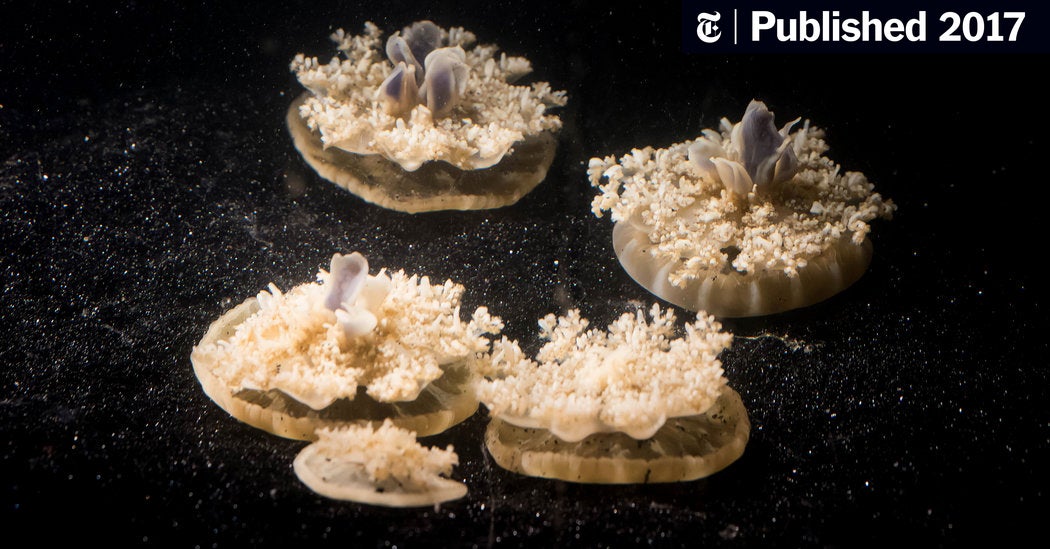- Reaction score
- 1,677
Worms and fish do it. Birds and bees do it. But do jellyfish fall asleep?
It seems like a simple question, but answering it required a multistep investigation by a trio of Caltech graduate students. Their answer, published Thursday in Current Biology, is that at least one group of jellyfish called Cassiopea, or the upside-down jellyfish, does snooze.
The finding is the first documented example of sleep in an animal with a diffuse nerve net, a system of neurons that are spread throughout an organism and not organized around a brain. It challenges the common notion that sleep requires a brain. It also suggests sleep could be an ancient behavior because the group that includes jellyfish branched off from the last common ancestor of most living animals early on in evolution.
Working together was natural for Claire Bedbrook, Michael Abrams and Ravi Nath. The three leading co-authors of the paper are all Ph.D. candidates in biology at the California Institute of Technology and close friends.
The project started with an observation by Mr. Abrams that some upside-down jellyfish in his lab would immediately slow their pulsing when the lights were turned off. Over coffee one evening, he discussed this phenomenon with Mr. Nath, who had been studying sleep in roundwormsand pondering whether other “simple” animals slept. The two decided to visit Mr. Abrams’s lab in the middle of the night, to see how the jellyfish were behaving.

 www.nytimes.com
www.nytimes.com
It seems like a simple question, but answering it required a multistep investigation by a trio of Caltech graduate students. Their answer, published Thursday in Current Biology, is that at least one group of jellyfish called Cassiopea, or the upside-down jellyfish, does snooze.
The finding is the first documented example of sleep in an animal with a diffuse nerve net, a system of neurons that are spread throughout an organism and not organized around a brain. It challenges the common notion that sleep requires a brain. It also suggests sleep could be an ancient behavior because the group that includes jellyfish branched off from the last common ancestor of most living animals early on in evolution.
Working together was natural for Claire Bedbrook, Michael Abrams and Ravi Nath. The three leading co-authors of the paper are all Ph.D. candidates in biology at the California Institute of Technology and close friends.
The project started with an observation by Mr. Abrams that some upside-down jellyfish in his lab would immediately slow their pulsing when the lights were turned off. Over coffee one evening, he discussed this phenomenon with Mr. Nath, who had been studying sleep in roundwormsand pondering whether other “simple” animals slept. The two decided to visit Mr. Abrams’s lab in the middle of the night, to see how the jellyfish were behaving.

How Three Friends Proved That Jellyfish Can Sleep (Published 2017)
What started as a midnight excursion of curious graduate students turned into a study with implications for basic questions about sleep.
Last edited by a moderator:



